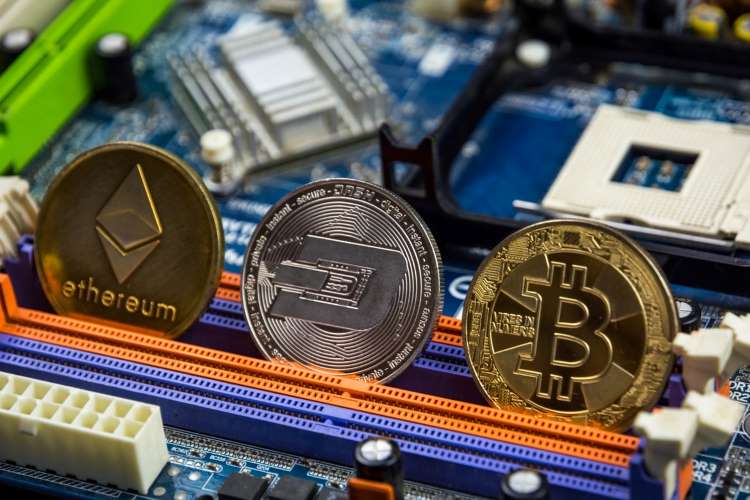
While global investors have given into cryptocurrency investment, governments around the world remain wary of it. India too has remained sceptical of digital currencies till recently. However, the government is now taking progressive and forward-looking measures on the issue, marking a departure from its earlier dismissive stance. India has the opportunity to blaze a trail by regulating cryptos, instead of following the footsteps of developed economies.
At a meeting on Saturday chaired by Prime Minister Narendra Modi, the government decided to engage with experts and stakeholders, steering India towards what could be the future of global currencies. It was also decided that global best practices on digital currencies must be followed. The government said it will collaborate with global partners to come up with collective strategies.
The economies around the world must come forward to regulate digital currencies that have taken the world by storm, especially when even developed countries have failed to come up with a framework to regulate cryptocurrencies. For instance, the United Kingdom only acknowledges the Bitcoin form of cryptocurrency. In Canada, transactions made in cryptocurrencies are considered barter. In Australia, cryptocurrency is neither considered legal tender nor seen as foreign currency.
READ I Cryptocurrency rush: Bitcoin rally forcing the sceptics to rethink
Advocates of cryptocurrency abound. They see it as the asset class of the future. The total value of all cryptocurrencies in the world is estimated to be more than $3 trillion with Bitcoin recording a stellar growth. The sweet spot with cryptocurrencies lies in the fact that unlike other forms of online transactions, no bank or government collects fees on their purchase and sale.
Also, cryptocurrency can be used to buy anything without the transactions being seen or recorded by such institutions. Most often, cryptocurrencies are bought as a form of investment with a hope that its value will soar and make a fortune for the buyer. The appeal lies in the volatility. Moreover, every transaction is safe as they are decentralised.
Cryptocurrency explained
In a country like India where investors usually like to see their investments in tangible form such as gold, cryptocurrencies have shaken up the traditional ways of investing with a promise of quick and humongous returns. The recent trend in cryptocurrencies is NFTs (Non-Fungible Tokens) which are digital objects such as music albums and artwork.
The virtual currency is secured by cryptography, making it almost impossible to counterfeit or double-spend. It works like a casino chip where a certain amount is paid in exchange for digital tokens, based on its current exchange rate. However, just like everything virtual, there is no money one can withdraw or hold in their hands. The currency exists merely as numbers on the computer. There are nearly 6,700 different cryptocurrencies. Bitcoin is the oldest and the most valuable of them and remains the world’s largest cryptocurrency. Other examples of digital currencies include Ethereum, Litecoin, and Cardano.
READ I Uncertain future: Can NFTs survive the Cryptocurrency Bill
The bad, the worse and the evil
Unlike a stock exchange which is overseen by a regulator that also manages the value of any given currency, there is no safety net if the bottom falls out, or if someone finds a way to rig or override the system where cryptocurrency data is stored. Also, unlike company shares, a bitcoin does not accrue value if a company grows or becomes more successful. The only way investment will grow is if many others buy that currency.
The value of cryptocurrencies swings based on how many people are buying that currency — the same way the stock market works. For example, Bitcoin traded at $20,000 in December 2017, dropped to as low as about $3,200 a year later, and currently trades at around $60,000. While Bitcoin has been a success, there is also great risk as can be seen from the case of Squid currency.
READ I TechFins: Why India must stop their unregulated, untaxed run
Fear of money laundering, terror financing
In the past, the Reserve Bank of India maintained strong views against cryptocurrencies. The apex body has reiterated that digital currency poses a serious threat to the macroeconomic and financial stability of the country while doubting the number of investors trading in them as well as the claimed market value. The recent crash of a cryptocurrency inspired by the popular Netflix series Squid Game also indicates that India may be right on this non-conventional method of investing. The currency crashed to zero after the makers pulled off a scam by leveraging the popularity of the show and made over Rs 25 crore.
Earlier, the government had said that a legal framework to regulate and govern the booming cryptocurrency market in India would be ready by next February when the Indian Parliament will start its Budget session. RBI has remained a staunch critic, but may now have to come around with it working on a digital currency.
Cryptocurrency is not a legal tender in India yet. However, cryptocurrency transactions aren’t illegal in the country. In 2018, the Reserve Bank of India had banned banks and other financial institutions from facilitating transactions in cryptocurrency after a rise in frauds right after PM Modi’s demonetisation move. The decision was later struck down by the Supreme Court in March 2020.
India may be losing out because of its cautious approach towards cryptocurrencies. The country is already a hotbed for cryptocurrency investment and is said to be among the fastest growing markets globally. Investors have now stopped considering it something new and have rather started to understand the benefits of blockchains.
The country has an estimated 15 million individuals who have invested in private cryptocurrencies in the recent past. This is the result of a combination of factors including the existence of dozens of start-ups in this space. This has fuelled an unprecedented investment boom, even while risks loom large with unregulated products.
Prachi Gupta is an Assistant Editor with Policy Circle. She is a post graduate in English Literature from Lady Shri Ram College For Women, Delhi University. Prachi started her career as a correspondent with financialexpress.com. She specialises in policy impact studies.

